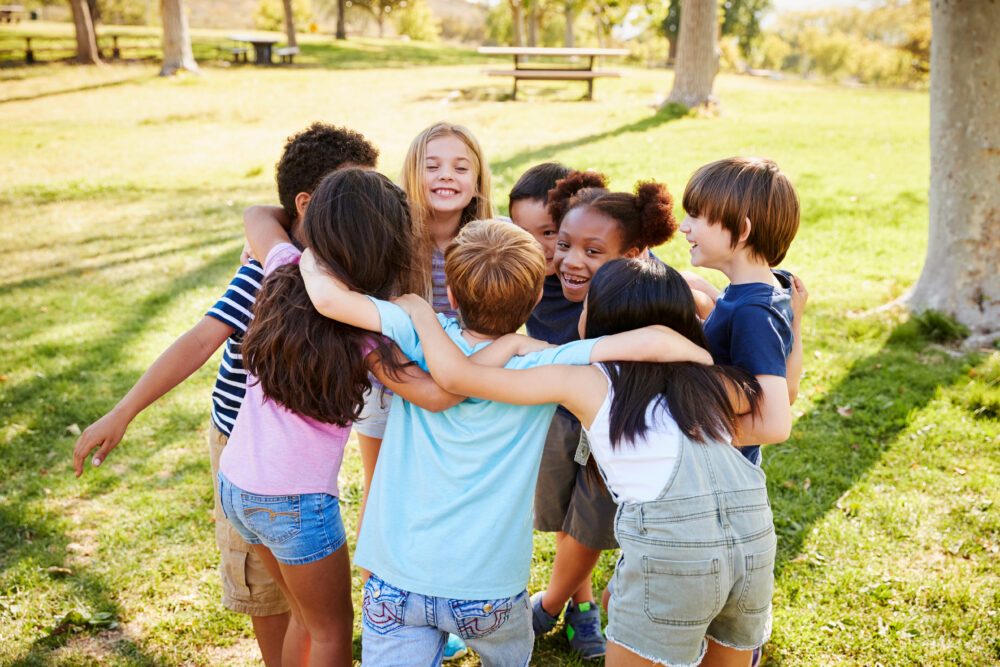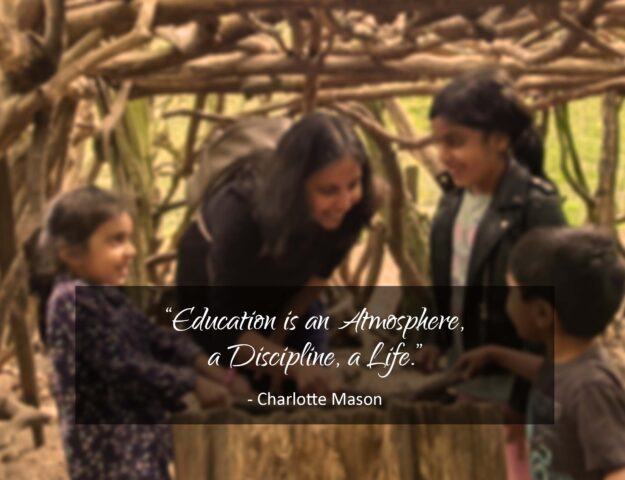The word socialization may make any homeschooling mum nervous at some stage in her homeschooling career. The fear that her child is going to be a social outcast because he does not attend a traditional school can be quite overwhelming. It is important to understand what drives this fear – is it inflicted by the society i.e., friends and family or does it stem from the preconceived notion of what we think of as socialization. Growing up, I attended a public school and looking back at my childhood, I don’t remember ever being encouraged to socialize in class, in fact I was often reprimanded for socializing. My teachers would remind me time and again that school was for learning and not for socializing. So, it is ironical that socialization is even a topic of concern or discussion when it comes to home education.
But what is socialization really? Oxford dictionary defines it as “the process by which somebody, especially a child, learns to behave in a way that is acceptable in their society”. Dare I ask, is this not what any good parent wants for their child? However, the real question here is who defines this acceptable code of behaviour and more importantly who delivers it to the child. Those who advocate that school is how a child learns to socialize are claiming that it is the school’s responsibility to train the child or in other words if a child doesn’t attend school, then he becomes unfit for the society. As a parent, I am deeply concerned about how my kids behave whether they are with family, friends or in any social gathering. In fact, I consider good behaviour and character building even more important than book learning.
Now, I know when people ask about socialization what they really mean is “but… how will they make friends?”. It is true I used to worry a lot and still do sometimes when I associate socialization with making friends. Think back to a time when you were in school or perhaps in a social setting – how easy or difficult was it for you to make friends or strike a conversation with someone? And the answer to this question would vary from individual to individual. To some it comes naturally and to others it requires effort. I have experienced this in my own life at various stages. When I have very little to contribute to a conversation, I may come across as an introvert. But if I am confident and know what I am talking about, then there is no stopping me, it doesn’t matter whether I am talking to an individual or to a group, making friends or conversation just seem easier in such circumstances.
My point is, it is not the school that determines how a child develops social skills, it is the different opportunities and experiences the child is exposed to that helps developing this very important skill. Sometimes we forget that even in schools we have kids who are known to be the quiet ones and who prefer keeping to themselves. So, we cannot generalize that kids who go to school are good at socializing just like the way we cannot generalize that homeschooled kids are not good at socializing. Either assumption is an ignorant one and simply unfair to make.
Now when I write this, I do not mean that my kids are the confident and elegant speakers who have an opinion about every topic, in fact my kids can be awkward sometimes and they may even give you the impression that they know nothing (especially if you quiz them on maths :P). It cracks me up when someone asks them a question and I can literally hear the crickets chirping! Now be honest, did I just not describe every kid at some stage of their life (or is it just mine :D). Social skills are never developed over night. It takes time, effort and a lot of guidance. As a Christian parent, I take great encouragement in exercising the fruits of the Spirit mentioned in Galatians 5:22-23 that talks about love, joy, peace, patience, kindness, goodness, faith, gentleness, and self-control. The more you exercise these in your life, I assure you, you and your children will meet and even exceed the dictionary definition of socialization.
Homeschooling is a brilliant opportunity to think outside the box and to identify the values that matter to you and to your family. You get to decide what the code of acceptable behaviour is for your child and not the school or the state. Although every school wants the best for their future citizens, the truth is, it is not guaranteed. Just like the way a homeschooling mum cannot compete with the school in terms of infrastructure and resources, a school cannot compete with the heart of a homeschooling mum that works tirelessly and sacrificially for her children. The homeschooling mum will use her discretion to provide whatever is necessary to allow her children to experience different opportunities be it group activities, play dates, co-ops, forest school, church camps and the list just goes on and on, so that her kids have the best chance to develop social skills. Just because it does not happen within the confines of a school building does not make it any less credible. Only a parent can understand what setting works best for their child without pushing him too much and at the same time cutting back on so-called social skill building activities if she thinks that’s what is best for her child and family. Remember sometimes less is more!
To all the homeschooling mums out there, don’t worry if your lot appears to not do so well in a social setting, I know how it feels. If your kids are young then take encouragement in the fact that there is still time and they will find their voice eventually, this process cannot be rushed and it has to happen at the pace of the child and not that of the parent’s. When people ask questions about socialization, please don’t take offense at that. Use the opportunity to “socialize” and open their minds to new ideas. These days I just let my kids do the talking when someone asks us about homeschooling 




